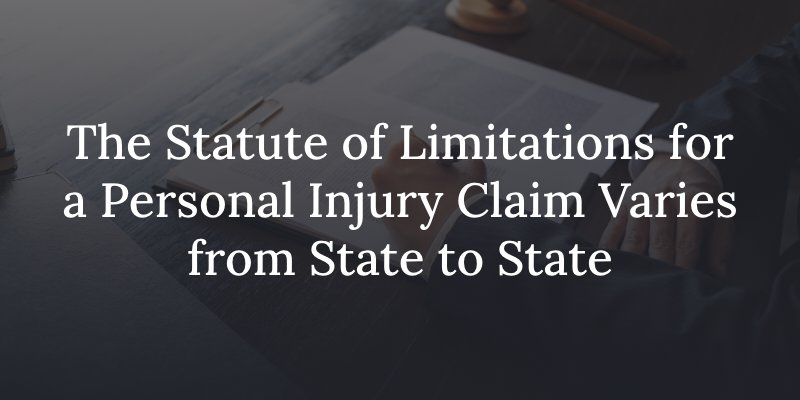Serious injuries, such as from a car accident, can cause serious impacts on a victim’s daily routine, ability to earn a living, and quality of life. Some victims fully recover and others suffer life-long impacts like disability due to their injury. The timing of a personal injury claim is an important but often not fully understood part of a successful personal injury case.
Many injury victims focus on the most critical aspect of their injury in the days, weeks, and months after the injury occurs and only have the time and energy to consider filing a personal injury claim to gain restitution for their financial damages after they’ve fully recovered. But how late is too late to file a claim? Can an injury victim file a personal injury claim and recover their losses even if they’ve fully recovered from their injuries?
Timing a Personal Injury Claim
While it’s important to speak to an attorney soon after an injury caused by someone else, the attorney won’t usually file a claim for your damages immediately. Even if you haven’t hired an attorney, it may not be too late to schedule a consultation and file a claim as long as you haven’t already accepted a settlement from the insurance company of the party at fault for your accident. Most successful personal injury claims with the largest payout amounts are those filed after the victim has recovered and has evidence of the full scope of their damages. “Damages” in a personal injury claim are the economic and non-economic consequences of an injury. Many injury victims file claims and accept settlement offers too soon after their injury and then discover that their medical expenses and lost wages exceed the amount of compensation they recovered in their settlement. Some injury victims return to work too soon and cause reinjury or a setback in their recovery, requiring more medical expenses and further lost income. In the worst cases, some accident victims accept a fast settlement before they learn that their injury left them with a partial or total disability but they cannot file a lawsuit because they signed away that right by accepting a settlement.
An experienced St. Louis personal injury lawyer can help you with the timing of your claim so you have the benefit of a full understanding of the financial consequences of your injury while there’s still time to negotiate with the insurance company for a settlement and file a lawsuit within the state’s statute of limitations if the insurance company fails to offer an acceptable settlement amount.
How Does the State’s Statute of Limitations Affect My Case?
Every state has a statute of limitations in place for filing personal injury claims. This is a time limit for filing a claim to recover damages like medical expenses, lost wages, and compensation for pain and suffering after an injury. The majority of states allow injury victims two years from the date the injury occurred to file a claim for damages but some offer longer time limits. Missouri has a particularly generous five-year statute of limitations for personal injury claims that allows victims up to five years from the date of the injury to file a claim—often this is long after they’ve recovered or reached their maximum level of physical recovery from their injury.
Time limits on filing injury claims help ensure that evidence is still available to send in a demand package to insurance companies or to present in court.
The Importance of Preserving Evidence for a Personal Injury Claim
Regardless of how long after an injury occurs that you file a claim, you’ll greatly benefit your case if you’ve taken measures to preserve important evidence such as the following:
- Photos and videos of the accident scene and your injuries
- Medical bills, invoices, and receipts
- Receipts for related expenses
- W2 forms and employer statements about missed days of work due to the injury
- Evidence of your pain and suffering from medical professional testimony, pain journals, and the testimonies of family members
If you’ve been injured due to another party’s negligence, reckless actions, or intentional wrongdoing, it’s important to speak to an attorney about the timing of your claim.


